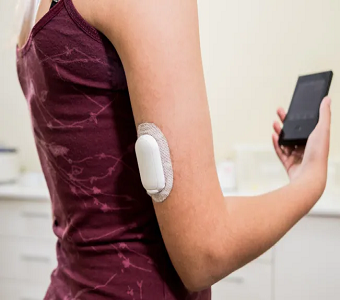The biotech sector has taken a meaningful step towards making up lost ground. After consolidating between $290 and $320 for the last month, the NASDAQ Biotech Index Fund (IBB) finally broke out of this narrow trading range last week, just ahead of the abstract release from the American Society of Hematology’s annual meeting. This is a good sign that this correction has run its course. Typically, the next leg down would have looked much like the break at $340 in September.

Assuming the bottom is in – for now – the sector’s peak to trough was about two months, and a drawdown of 30%. The S&P 500, meanwhile, has regained almost the entirety of its 13% drop between July and August.The Federal Reserve at its FOMC meeting last week elected not to raise its short-term interest rate this month, no surprise to most market participants. But the Fed also left open the opportunity of raising this overnight rate in December, keeping the phrase “at it’s next meeting” in the public communication.
In September, the same “no hike” announcement sent stocks tumbling; now the inverse is true. The S&P continued higher in the wake of this news, important as it suggests that investors are finally getting comfortable with the (likely) imminent removal of the Fed’s easy money policies of the last few years. Real economic outcomes are finally coming into focus, where the markets previously cheered the continuation of a low-rate environment, despite that the cause was a sluggish economy.
This Friday, U.S. jobs and employment numbers exceeded economist expectations by a wide margin, with the unemployment rate hitting a 7-year low of 5%, the threshold that the Fed sees as indicative of full employment. That and the 271K non-farm payrolls increase — well over the 180K that economists expected — make December that much more likely for a rate hike. The Fed can’t jawbone forever, and presaging “at its next meeting” last week was essentially the Fed preparing investors for a hike in the very near-term. The Fed likes to prepare investors well in advance and can’t drag its feet forever.
As usual, the ASH abstract drop this Thursday morning resulted in significant moves for some biotech names. Bluebird bio (BLUE) dropped 20% (read our take here), and Cellectis (CLLS) (ALCLS) ripped 70% over the course of the week after investors were made aware of the first-in-human experience with UCART19, its allogeneic CAR-T product. Results from the first study of UCART19 weren’t expected until the first half of next year, which is part of the reason that CLLS lost about 50% of its value since listing in the U.S. this March. In the same category, Bellicum’s (BLCM) BPX-501 cell therapy is worth following into the actual meeting next month. Though not a CAR-T, -501 employs a “suicide switch” in an effort to improve the safety of, and immune reconstitution with, hematopoietic stem cell transplants. The treatment already works well in a handful of hematologic disorders, malignant and otherwise, but finding a safe donor isn’t easy for most patients; BPX-501 is designed to simplify that by making halpo-identical HSCT’s, with a mismatched donor, a safe alternative. Read more here.
Also, take a moment to fill out a quick survey we’re conducting this weekend. It will take less than a minute, and it will help us understand our readers – and learn what you want. We’ll be working on some new educational initiatives, including an upcoming live market review, and you can help shape that direction.
Happy investing!
P.S. We’re always looking for fresh investing/trading ideas in the space, and PropThink Premium is where we publish them. Learn more, and try it, for just $49.





